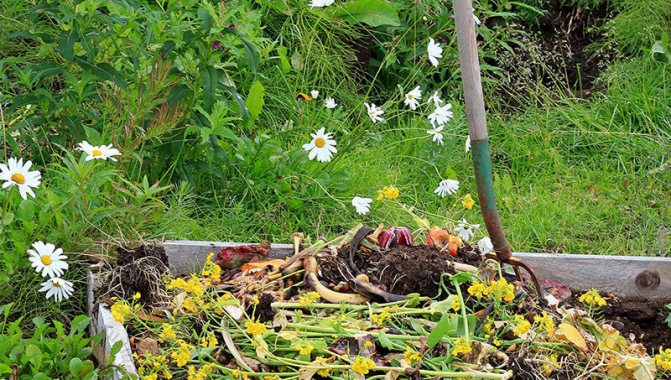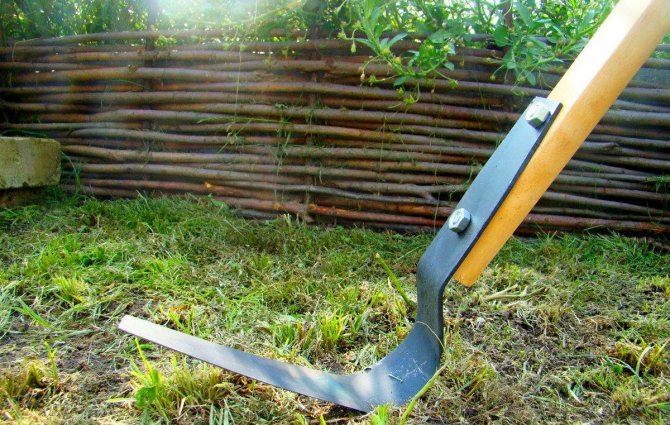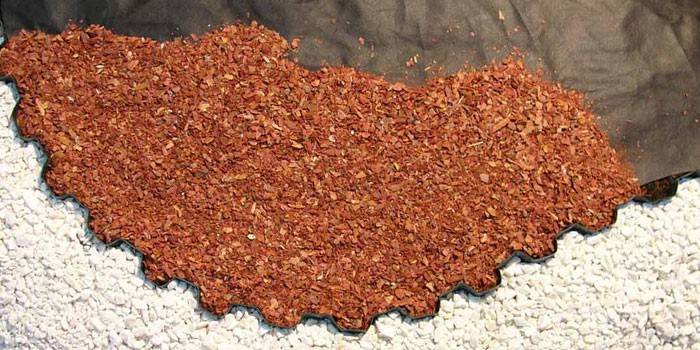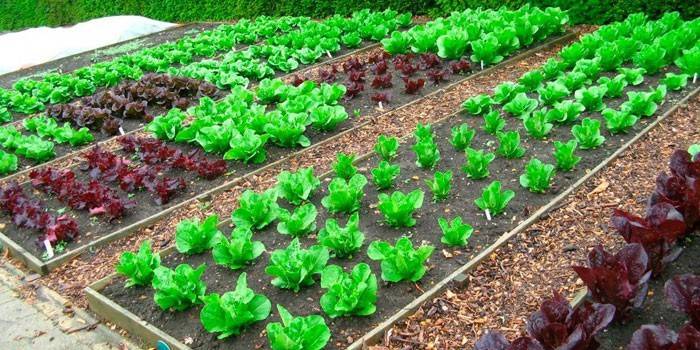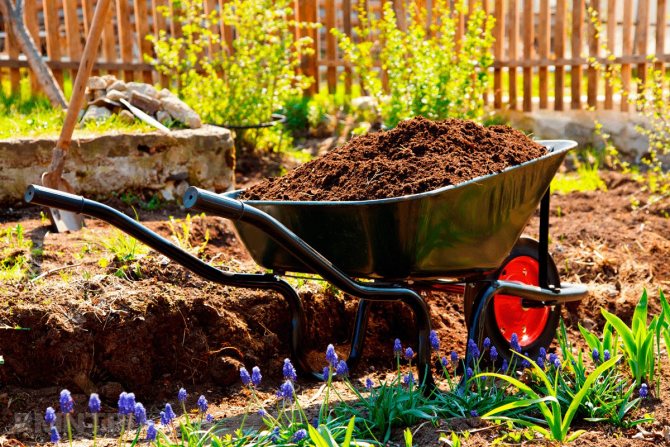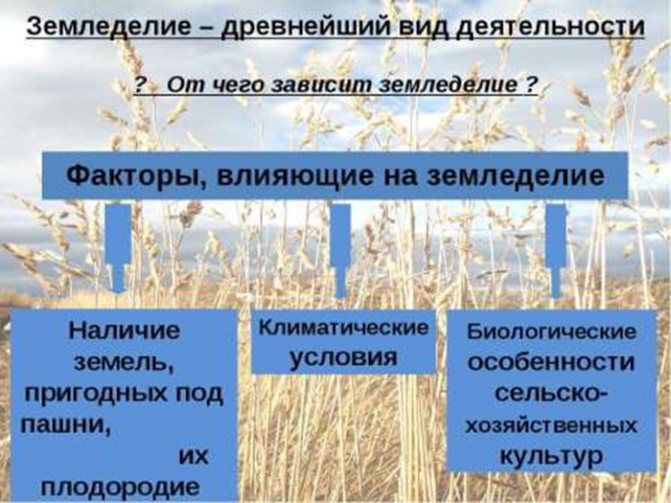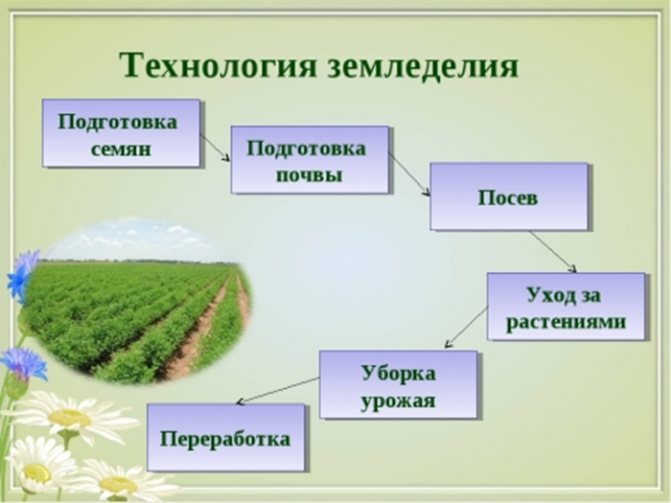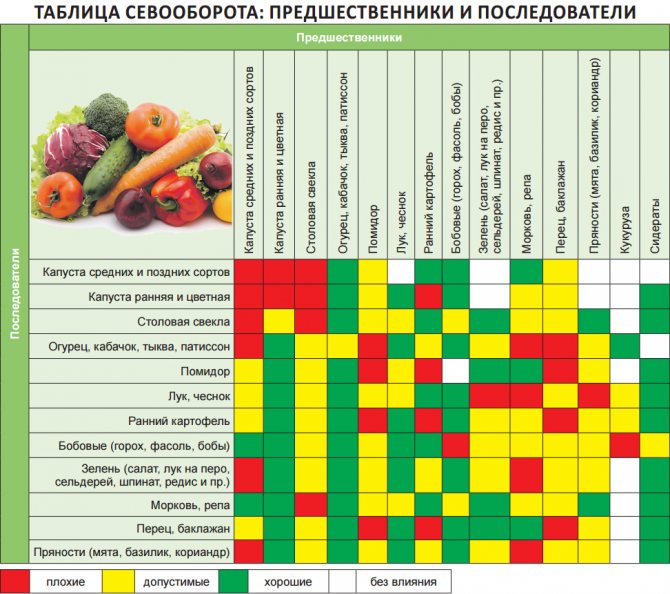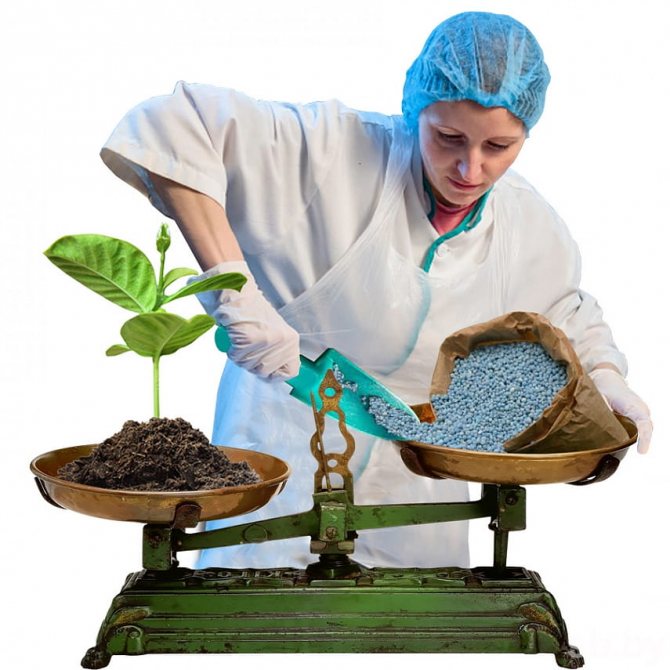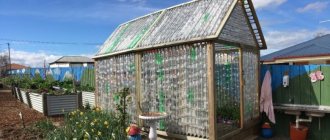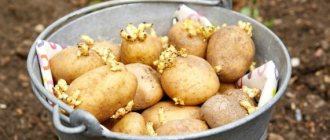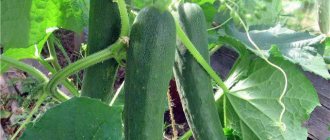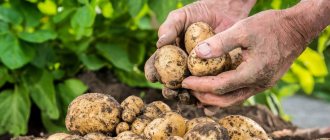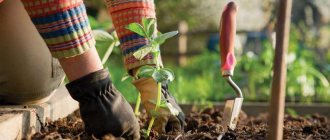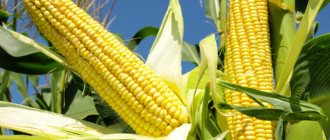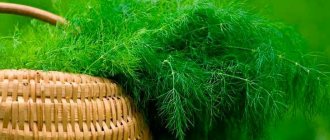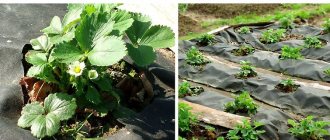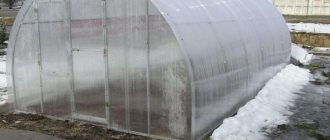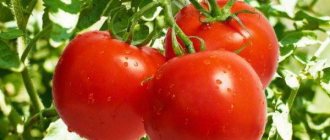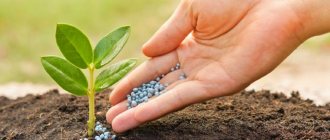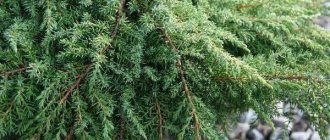If you notice that fruits and vegetables from the garden have become not so tasty, plants are getting sick more and more often and do not give such a harvest as before, it's time to think about new principles of farming. To cure the lifeless land, poisoned by the uncontrolled application of fertilizers and pesticides, you need to radically change your idea of gardening, and engage in environmentally friendly farming. Then the harvest from the summer cottage will be completely safe and extremely useful.
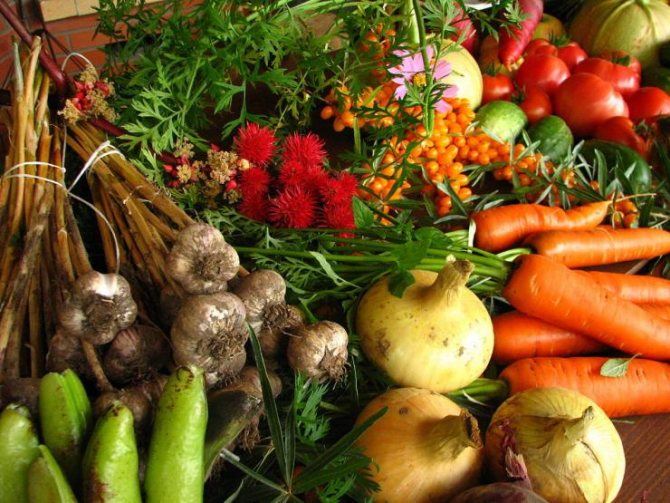
Organic farming in the country
Many residents of FORUMHOUSE are the most ardent supporters of the method of organic farming, in which the cultivation of fruits takes place in full harmony with nature, according to the principle "do not remake nature, but help it." Strict followers of this method do not use a shovel and hoe, do not remove weeds, and work for several days during the season - the rest of the time they harvest.
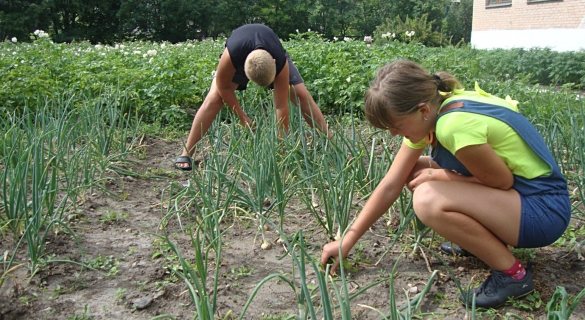

Basic principles of organic farming. Organic farming advocates:
- do not plow and do not dig up the ground, the maximum that is allowed is to loosen the soil with a Fokin flat cutter to a depth of 5-7 cm.
- never use herbicides. Good agricultural technology is the key to a healthy plant, and there are no aphids, fungal diseases, and the Colorado potato beetle in the gardens of well-known organists. And if diseases and pests do appear, they are treated with microbial solutions, folk remedies or biological products.
- do not use mineral fertilizers: you can only use compost, rotted manure, mulch, warm beds, etc.
- try to attract as many earthworms as possible to their site and stimulate the work of soil microorganisms.
- both beds and paths are actively mulching. Agronomist Nikolai Kurdyumov, the author of the “smart garden” system, says that mulching will not get rid of weeds at all, but it’s easier to “rip out one weed exhausted by the struggle for rooting” than to be on duty with a hoe all the time. But the main purpose of mulch is not even to combat weeds, but to maintain moisture, increase soil fertility and improve its structure.
Adhering to these principles on his site, the summer resident pursues three goals:
- increase soil fertility (every year it gets better and better);
- grow exceptionally healthy and tasty fruits without any chemistry;
- to reduce the time spent on work in the beds, to facilitate work.
Asemenych Participant of FORUMHOUSE
But OZ in the farm requires exceptional consistency and high technological discipline! And without this it is better not to start ...
Where to begin
It is necessary to start the transition from the classical method to growing plants according to the principles of organic farming in your garden area by studying this technology. It is important to decide whether the gardener is ready to accept such a philosophy of working with the land, or he strongly doubts its effectiveness.
If in doubt, you can select a small sample area to understand how it all works in practice.
That is, to spend one or two seasons of agrotechnical work in natural ways: stop digging, cover the ground with mulch, plant green manure, abandon the use of chemistry or reduce its amount by at least half.Then it remains only to compare the results and draw conclusions.
Sepp Holzer's Permaculture
Permaculture is a trend in organic farming, which was founded by the famous Austrian naturalist Sepp Holzer, together with two friends.
Permaculturologists set themselves the task of creating a garden-vegetable garden that will take care of itself. To do this, they select plants that stimulate each other's growth, do not compete for nutrients in the soil, and scare away pests from each other.
Artecology FORUMHOUSE Member
The Art of the Lazy Master! This is how I would describe the concept of permaculture for all of us.
A member of our portal with the nickname ShadeXXX, using the principles of permaculture, is trying to revive his site in the steppes of Kazakhstan. Now on his clayey area there is nothing living except dry stunted grass and mosquitoes, but he is sure that in a few years there will be a garden and a pond.
General concepts
Discussions about how effective and safe this direction in agriculture is, continues to this day. However, despite the controversy, the fact remains - the earth is like a sponge that absorbs everything... And the yield on the cultivated area directly depends on how saturated it will be with useful microorganisms and substances.
Today, to obtain a bountiful harvest, many people use chemical fertilizers, which negatively affect not only the soil, but also the quality of the crop. Many gardeners decided to abandon the use of agrochemicals in favor of organic farming.
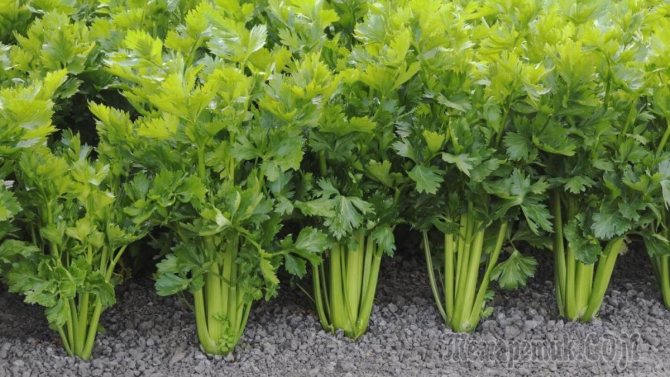

In simple and accessible language, organic farming is the use of natural natural processes, waste products, phenomena and living organisms that contribute to the development of natural processes in the agricultural system in order to obtain a healthy, rich and high-quality harvest. With a competent approach, you can get not only high-quality products grown on your own land, but also protect the environment from human interference.
Bagel's lazy vegetable garden
One of the most famous permaculturologists of the post-Soviet space is Boris Bublik. He believes that any work with a hoe and a shovel harms the garden: you just need not interfere with nature, and even better help her by planting suitable plants nearby.
He does not remove weeds, works in the garden for only a few days a season, and practically does not care for him. The vegetable garden grows according to the principle of "edible forest", by itself, without human intervention. In the photo - Boris Bublik's garden.
This is a rather radical approach, and among the supporters of organic farming FORUMHOUSE, the attitude towards Bublik is ambiguous: "he is more of an orator than a scientist." But this prevents the participants of our portal from successfully using many of the techniques of a permaculturologist. Especially the garden tools of his invention (or based on them).
A tool for planting potatoes, or, as the permaculturist himself calls it, "potato horseradish" is a thick stalk into which a nail is driven to control the depth of the hole. The bagel does not plant whole potatoes, but the eyes from the largest tubers.
In the photo below - "potato horseradish" by a member of our portal with the nickname Deppert.
Deppert
I planted it with cut out eyes, stuck the holes more tightly, threw the sprouted eyes into the holes and trampled them down. Everything. Planting 4 varieties of potatoes took about an hour of leisurely work with smoke breaks.
The bagel does not sow seeds in the beds in even rows, he considers it pointless. He has about ten portable seeders - 1.5 liter plastic bottles with holes in the bottoms. Each planter has holes of a certain size - very small, for carrots, larger, for beets, etc. The gardener randomly scatters seeds over the beds with seeders, covers them with earth with a rake or a flat cutter - that's all.
A summer resident should not stand over the garden bed, bent over with the letter "g", says Bublik. He sows large seeds through a long pipe, first making holes with a peg (in the photo this pipe is on the far right).
Another know-how: self-seeding beds. Onions and garlic in August are not completely harvested, the seeds are scattered, and in the spring the summer resident, without hitting his finger on his finger, has a sown garden!
Bagel's book “Your Garden. Unusual approach to familiar things ”became the primer of organic farming for our member with the nickname Sly Fox. Thanks to this book, the forum member stopped perceiving the dacha as a place of hard labor and shared useful information with all members of the forum.
Sly fox
My main task in the "garden" period was to escape from the dacha rent by any means. I read it, and it hit me, so much so that every day, month, year it becomes more and more difficult for me to get out of the garden-garden-front garden.
Siderata are our everything
One of the agricultural practices, which is an integral part of biological farming, is planting green manures on temporarily empty land. According to many farmers, these crops are the best natural fertilizer. For these purposes, such fast-growing and micronutrient-rich plants are used, such as:
- legumes;
- mustard;
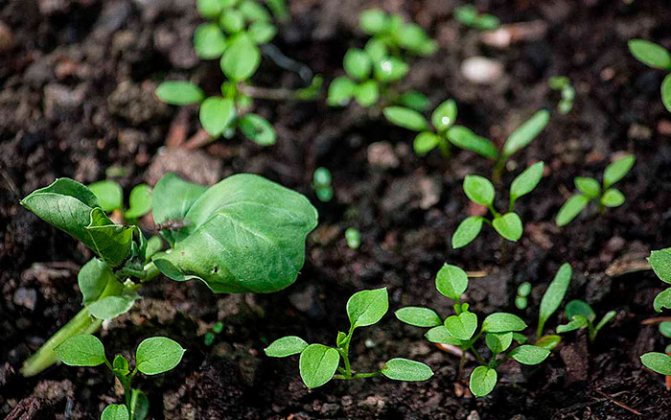

- clover;
- rape;
- spring rape;
- rye.
Siderata can be planted in spring, summer and autumn. In the spring, such fast-growing and frost-resistant plants as mustard, rapeseed, phacelia are planted. They are sown very early and grow until it is time to plant the main crop. Then the siderates are mowed with a flat cutter a few centimeters below ground level, and the main plants are planted in the soil prepared in this way. Tops, stems can be used as a cover for sowing beds.
In the fall, rye and mustard are most often sown. Sowing is carried out after harvesting vegetables. The rye is harvested at the end of autumn, chopping off the stems at the base. And the mustard goes under the snow. In the spring, it is cut with a flat cutter and the main crops are planted.
Organic farming is an environmentally friendly production based on respect for nature and human health. There are many techniques and methods of natural farming. But, in any case, each site is individual. There are no absolutely identical sites in terms of soil composition, microclimate, and the list of planted crops. What fans of organic farming never tire of repeating is: “Listen, take a closer look at your land, at your plants. And apply the knowledge gained in practice. One must always trust nature, every day. "
Narrow beds along the Mittlider
Jacob Mittlider is a Doctor of Agricultural Sciences. The task of his system is to get outstanding yields from a small area without much difficulty. The system is based on two pillars:
- Narrow ridges and wide passages between them. We talked in detail about this technology, which provides plants with optimal lighting. The beds and aisles never change places.
Michurinets Participant of FORUMHOUSE
I welcome wide passages in this method: we always squeeze one bed over another, and when it grows, a jungle is formed.
- Regular feeding of plants with mineral fertilizers. Mittlider makes balanced feeding according to special recipes, and they include a fairly significant amount of mineral fertilizers. The soil can even be replaced with a neutral substrate to which nutrients are added. The main thing is that plants receive deficient magnesium and molybdenum, which convert nitrates into proteins and amino acids necessary for plant growth and maturation.
But this system was developed by the doctor for the most unsuitable soils: barren, polluted, "killed" by construction work, rocky and even artificial soils.The amount of mineral fertilizers that Meatlider offers inevitably leads to soil degradation and salinization.
Therefore, our members of the forum are skeptical about this part of the system, and they adapt Mittlider to their organic principles.
Nadenka
I used this method for several years, now I have left only narrow beds. A lot of fertilizers greatly impoverish the soil. I have ceased to be found not only weeds, but also worms!
Summing up
Gardeners of our portal rarely follow any one system, rather, they creatively rethink each and take something useful for themselves. A smart approach to the beds completely changes the dacha life: drip irrigation, mulching, narrow beds, planting potatoes for hay, etc. lead to the fact that the work in the garden is no longer hard. It contains more and more creativity, creation and joy from cooperation with nature.
At FORUMHOUSE you can learn about the double digging method and basic recipes for microbial compositions by John Jevson, read an article about the autumn digging of soil, learn how to analyze soil fertility at home. Check out our users' organic farming experience. Follow the permaculture experiment in the steppes of Kazakhstan — soon this earth, dry and hard as concrete, will be unrecognizable. Watch our video to help you determine the type of soil on your site.
Subscribe to our Telegram channel Exclusive posts every week

